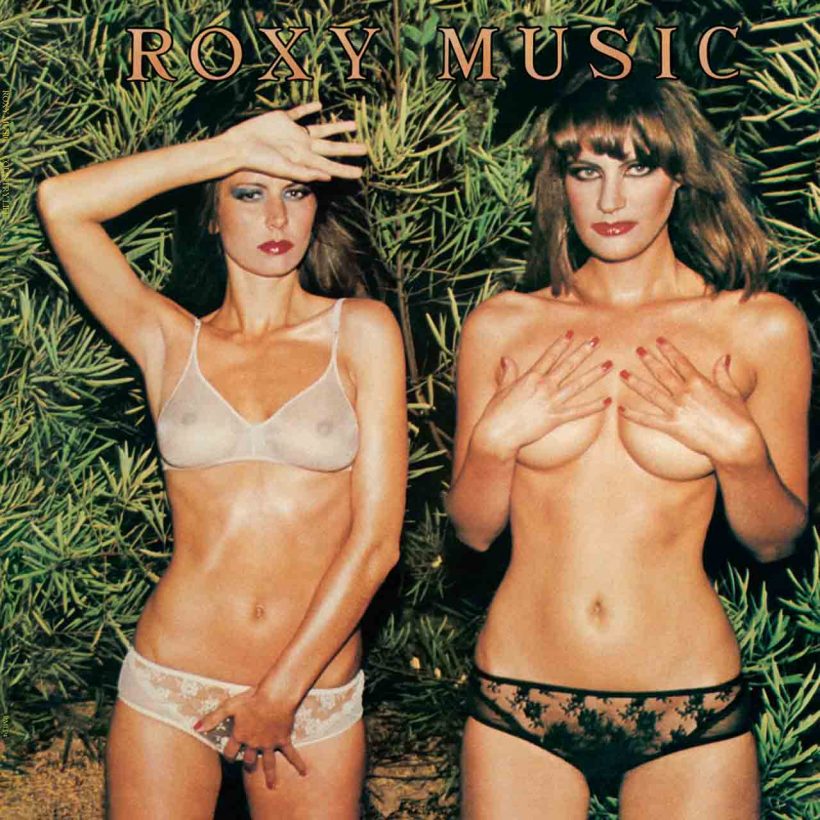‘Country Life’: Roxy Music’s Risque Classic Turns Censure Into Chart Success
Saucy, sophisticated, and accessible, the album won approval from fans and critics alike.

First issued in November 1974, Roxy Music’s fourth album Country Life was immediately mired in controversy due to its salacious sleeve art. The record’s glossy cover, starring two scantily-clad German models, Constanze Karoli and Eveline Grunwald, was initially censored in Spain and the U.S. – and even after five decades and a gold certification in the U.K., it’s still recalled primarily for its risqué cover design.
Admittedly, a strong visual aesthetic was part and parcel of every Roxy Music release, but this was invariably matched by the band’s consistently innovative music – and that was certainly the case with Country Life, which contained some of the most stylish, confident, and accessible songs Bryan Ferry and company ever committed to tape.
Listen to Roxy Music’s Country Life now.
Roxy Music were on a high while they were preparing the material for Country Life. Fans had initially bemoaned the departure of Zelig-like synth maestro Brian Eno following their second album For Your Pleasure, but multi-instrumentalist Eddie Jobson proved an able replacement and Country Life’s predecessor Stranded topped the U.K. charts, spawning a Top 10 hit with the vibrant “Street Life.”
Country Life also found the band distancing itself from the flagging glam-rock movement and edging closer to rock’s mainstream. The record came together from sessions at George Martin’s AIR Studios in London during the summer of 1974 and – with John Punter’s sympathetic production adding depth and clarity – it once again captured Roxy Music hitting a new creative peak.
The album’s first side was especially direct. Goaded on by Ferry’s urgent lyric (“It’s now or never, don’t hesitate”), the hard-rocking opening track “The Thrill Of It All” barely lets up for six minutes, while the record’s trailer single “All I Want Is You” fizzed with proto-punk energy and the heavily-flanged “Out Of The Blue” evoked the sort of chilly atmosphere that post-punk acts such as Magazine later immersed themselves in.
Country Life’s second side, meanwhile, contained some of Roxy Music’s most adventurous music to date. It opened with the shape-shifting “Bitter Sweet” – a song with a decadent, cinematic atmosphere and more than a touch of Cabaret-era Berlin – and then traveled even further out with the sophisticated, chromatic pop of “A Really Good Time” and the harpsichord-driven, madrigal-esque “Triptych.” Elsewhere, as he had previously done on For Your Pleasure’s “In Every Dream Home A Heartache,” Ferry launched an attack the vacuous nature of fame on the steamy bump’ n’ grind of “Casanova” before the record came full circle and concluded with the grooving rocker “Prairie Rose.”
Crucially, despite the flights of fancy and smorgasbord of styles, Country Life hung together beautifully and arguably sounded like the most complete Roxy Music album to date – an assertion which fans and critics alike rapidly seized upon. Indeed, despite its initial censure, Country Life’s broad appeal soon translated into sales and its artistic merit was rapidly seconded by Rolling Stone, whose rave review accurately proclaimed that “Stranded and Country Life together mark the zenith of contemporary British art rock.”












